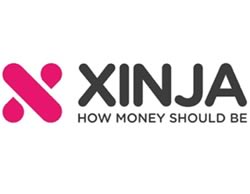Jack Derwin* says the rise of neobanks in Australia has been marred somewhat by a disagreement about what constitutes one.
 As neobanks began arriving in Australia, the message they brought with them was clear: we’re all in this together to take on the banking oligopoly.
As neobanks began arriving in Australia, the message they brought with them was clear: we’re all in this together to take on the banking oligopoly.
That treaty, however, looks threatened as the personal banking newcomers — Xinja and 86 400 — start battling it out in the market.
When 86 400 received the green light to operate in Australia just nine weeks ago, Xinja’s public statement was icy.
Xinja co-founder and CEO, Eric Wilson cast aspersions on the fact that 86 400 is wholly owned by payment provider Cuscal, which is owned in part by the likes of Bendigo Bank and Mastercard.
That fact, to Wilson’s mind, negates its independence from old financial companies.
“Obviously congratulations to the team at 86 400,” Eric Wilson said at the time, in a note issued to Business Insider Australia.
“However, whilst this is a new [banking licence], 86 400 is effectively owned by an existing bank, so we don’t necessarily expect as much disruption of the industry from 86 400 as we would from a truly independent neobank.”
Contrast that to the reception received by Volt Bank, founded by one of Wilson’s former NAB colleagues, Steve Weston, when it became the first of the three to receive partial approval.
“Hats off to Volt for getting the first restricted licence and we hope to follow suit soon so that we can extend the product suite to transaction accounts,” Wilson said back in May 2018.
“We have always said we welcome this kind of competition.”
The success of their UK counterparts, which all three are trying to emulate, demonstrated that in numbers neobanks can become “normal” and then begin taking customers from incumbents rather than each other.
The idea is that the big four banks — Westpac, NAB, ANZ, and the Commonwealth Bank — have for so long dominated the Australian market that more challengers are required to truly take them on.
The line about teamwork was certainly peddled by Xinja, Volt and 86 400 in the earlier days.
“Once you get a critical mass of neobanks, the customer base for all of them starts to increase,” Wilson told SmartCompany, for example, back in January.
It comes down to what “kind of competition” Xinja welcomes.
Certainly, the genial “more the merrier” narrative consistently peddled by the Australian neobanks starts to fade when you begin drilling down into what exactly is a genuine neobank.
If you ask Wilson, in Australia, there are only two true contenders: Xinja and Volt.
“A lot of the others spoken about in the media are digital distribution strategies for existing [institutions], meaning they are owned by banks that have been around for 30-plus years,” Wilson has previously said.
Time and time again, “true neobanks” have singled out other banks like Up (owned by Bendigo Bank) and uBank (owned by NAB) as pretenders.
In other words, the distinction lies between new wholly digital banks and old ones that are simply becoming digitised.
That’s often why Australian neobanks are counted as only numbering three — or four if you include business lender Judo.
It’s the same contention Xinja has with 86 400 as well, and one Wilson has been open about.
86 400’s ownership by Cuscal — and by virtue, Bengido and Mastercard — negates its independence and status as a true disrupter.
In other words, Wilson asked, how can you disrupt the status quo if you’re indirectly funded by it?
Xinja, for the record, has raised approximately $5 million in two separate crowdfunding rounds as well as receiving money from several early private investors.
Volt Bank, which has remained quiet on its feeling towards 86 400, has courted institutional investors as well as an $8.5 million stake from debt collector Collection House.
While 86 400 has also held its tongue when it comes to Xinja’s criticisms, there does appear to be at least ample competitiveness between the two.
A spokesperson for 86 400 was quick to dismiss the suggestion that Xinja had pipped it at the post to get to market, as a previous version of a Business Insider Australia article stated — a clarification by the bank, and subsequently by the website, discovered that there is, in fact, a two-month waitlist to set up a transaction account.
Certainly, there did seem to be at least a hint of weariness when Business Insider Australia put the feud in question to 86 400 ahead of its launch last month.
“From day one we’ve deliberately focused, and we’ll continue to focus, on the four big banks that have 80 per cent of the market,” 86 400 CEO, Robert Bell said.
“If we turn our attention anywhere else, that’s a distraction.”
“The only thing I would say is we are 100 per cent funded by Cuscal, which is our one and only shareholder, we have an independent board, we’re an independent company, we’re in separate premises, we have gone to all the effort of getting a separate full banking licence and now we’ve brought that product to market.”
Then there’s the pedigree of 86 400’s Chairman, Anthony Thomson.
Thomson previously founded Metro Bank — the UK’s first new high-street bank in 150 years — as well as that country’s first digital bank, Atom.
Both challenger banks provided a shakeup to UK’s similarly well-entrenched incumbents.
Regardless of whether or not 86 400 satisfies the criteria, the launch of it and Xinja is enough to create some competition in a market that sorely needs it.
Certainly, the mention of the feud to Bell draws a familiar line.
“We’re not worried about there being more than one player in the market,” Bell said.
“I think if there’s two or three that are successful that’s got to be helpful for competition and for choice.”
With each now shaping up against each other, we’ll see if the ceasefire lasts.
Xinja declined to comment for this article.
* Jack Derwin is a senior journalist at Business Insider Australia. He tweets at @jack_derwin.
This article first appeared at www.businessinsider.com.au.







